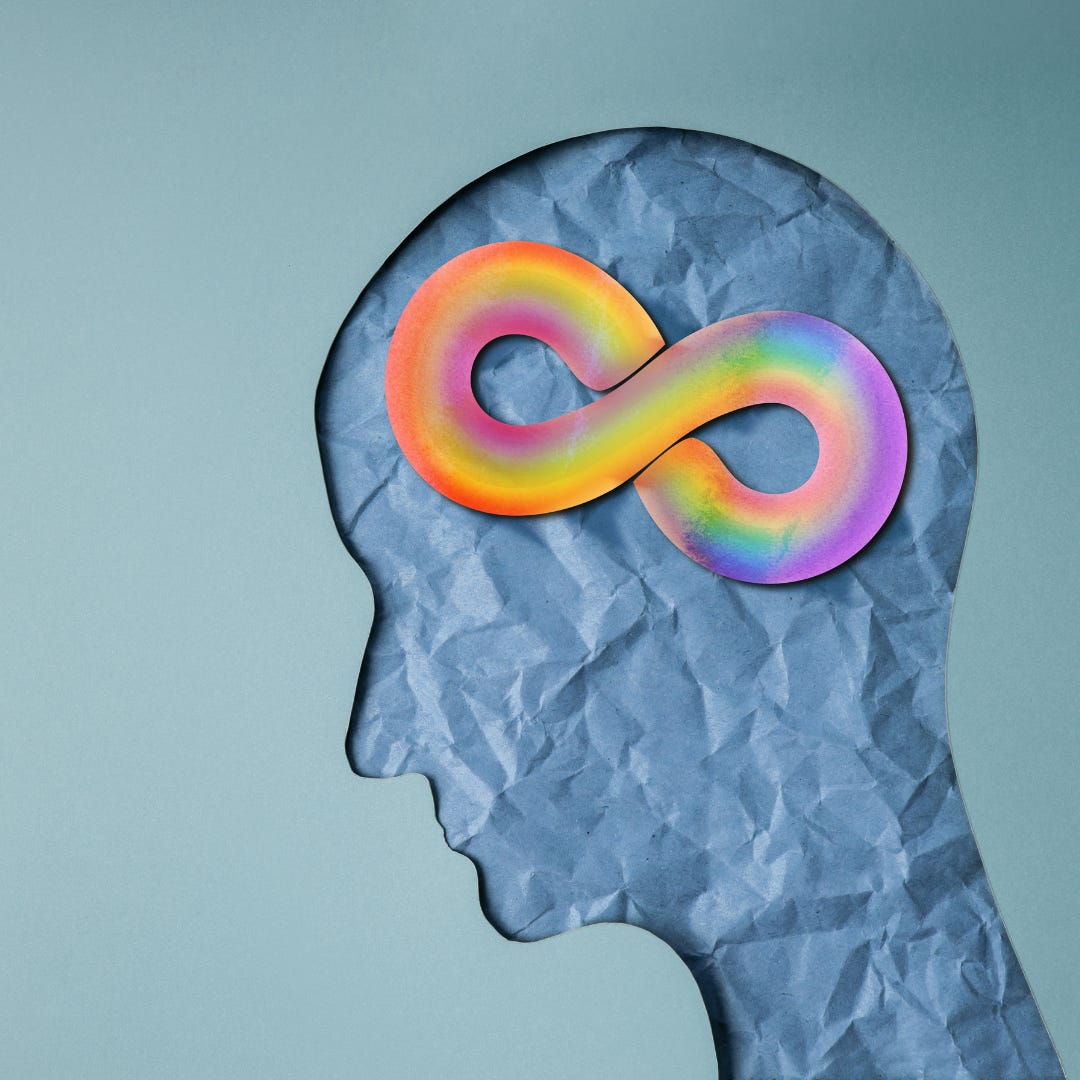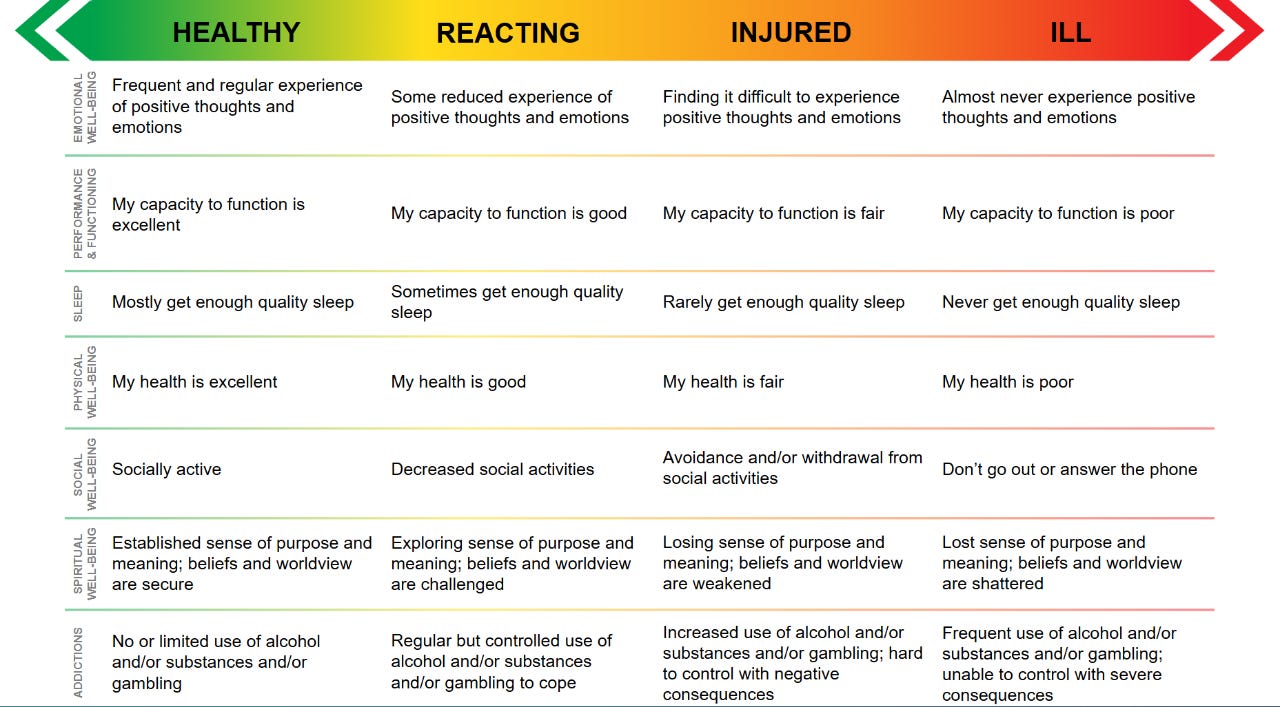Managing the sliding scale of mental health.
My biggest lesson: Prevention is better than cure.
I have wondered if anxiety stems from nature or nurture.
Does it shoot and grow from mountainous pressure or root when we step outside our comfort zone.
Is it triggered from the past or projections of the future.
Take seed from trauma, steeped from childhood or baton handed down through generations. Maybe it’s biology, like faulty wiring in the hard drive. Or simply an internal reflection of our external world.
Coaching others through anxiety I have noticed some commonalities in cause. Observational notes that unite through a shared thread, yet ultimately, it is complex and personal.
Which calls for an individual exploration.
I spent many years suppressing and hiding an underlying anxiety. Over this time my thoughts have been both friend and foe. An enquiring and inquisitive mind that struggled to shut off, particularly when the lights went out. I have lived with bouts of chronic insomnia, oh the elusiveness of sleep! Struggling to relax and go with the flow. Analysing, prophesizing and projecting, at times paralyzed by a bombardment of thoughts and fears.
In my past I have adopted various unhealthy self-soothing habits. A modicum of calm in the chaos of my mind. Coaxing my nervous system into temporary submission left me dealing with a few well-worn dopamine stimulating pathways that proved difficult to detour.
I have also experienced periods of intense activity, mostly to exhaust and distract myself. Ball juggling, excessive consumption, tiring myself out with work and commitments. It ticked along for a few years until I burnt out, my body and brain revolted.
And the journey of healing began.
That was over 18 years ago, and it feels strange looking back. At the time I quickly realised nobody was willing or able to fix me. It was a journey for me to take. One that ultimately lead me to teach and coach others on the road to recovery.
Feelings of anxiety/stress/burn out are considered ‘common mental health conditions’ yet we haven’t mastered the message of personal responsibility. Monitoring our mental wellbeing is essential. Understanding when it is impacted and taking steps to recalibrate, protect or seek help before symptoms feel beyond our control.
This applies to everyone.
The mental health continuum is a model that illustrates how mental health exists on a sliding scale. From optimal well-being to significant mental health challenges. It helps us understand that mental health isn't binary (you're either "mentally ill" or "mentally healthy") but instead fluid and ever-changing based on life circumstances, stress, and resilience.
Reflecting on the continuum, I can see that ignoring symptoms lead to my sliding into ‘ill’ territory. Trust me, it takes lots of time and care to bring yourself back from that!
Just as with physical health, prevention is better that cure. Common social media suggestions to breathe, journal, walk, meditate and hydrate are useful. Yet do not work as effectively once we reach crisis point.
When anxiety grabs you by the throat at 2 a.m. or sinks its claws into your chest amid a challenge, most social media advice feels like putting a band-aid on a bullet wound.
Yet, if we prioritise time and attention toward our wellbeing the chances of sliding into danger territory are lessened. Not only do we manage that scale to benefit our mental health but cultivate strong roots for future storms when they blow through.
So, to stay in or return to the “Healthy” zone on the Mental Health Continuum, the key is proactive maintenance. Utilising and accumulating tools and techniques that support emotional, physical, mental, social, and spiritual well-being.
Here are some of my favourite tools and activities:
Mindfulness & Meditation: Daily practice, even 5–10 minutes, improves my emotional regulation and centredness. I love mindful walking (no distractions) because it is medicine.
Journaling: Helps process my thoughts and emotions. I write every day.
Regular Movement: Exercise releases endorphins and lowers cortisol. It improves my mood and gets rid of any stress hormones circulating. I like feeling tired at the end of the day. I enjoy walking, cycling, yoga, reformer Pilates and lifting weights.
Consistent Sleep Routine: I get 7–9 hours of quality sleep as it supports my mood, nutrition, and resilience. If menopause interferes I have earlier nights to account for night waking.
Nutrition: Whole foods, omega-3s, hydration—your gut and brain are deeply connected. I also avoid caffeine after 12 noon and sugar. Alcohol in moderation works for me.
Connect regularly: I make time for people who uplift me. Social support is a protective factor.
Set Boundaries: I protect my energy. Everyday…..this is non negotiable.
Be useful and kind: Helping others boosts my mood and connection.
Align with Values: Living in alignment with my values is important and brings me inner peace.
Nature Time: Grounding practices like walking barefoot on grass or sitting under trees. Long hikes and cycling in forests, by the sea and over fields.
Rituals: Daily/weekly rituals—lighting a candle, prayer, breathwork, playing my sound therapy instruments.
Creative Outlets: Music, art, writing, dancing.
Digital Hygiene: I set tech boundaries and switch off in the evening.
Laughing: Making time for play and being silly! I am serious by nature and schedule this in as essential mental health care.
How about you?




